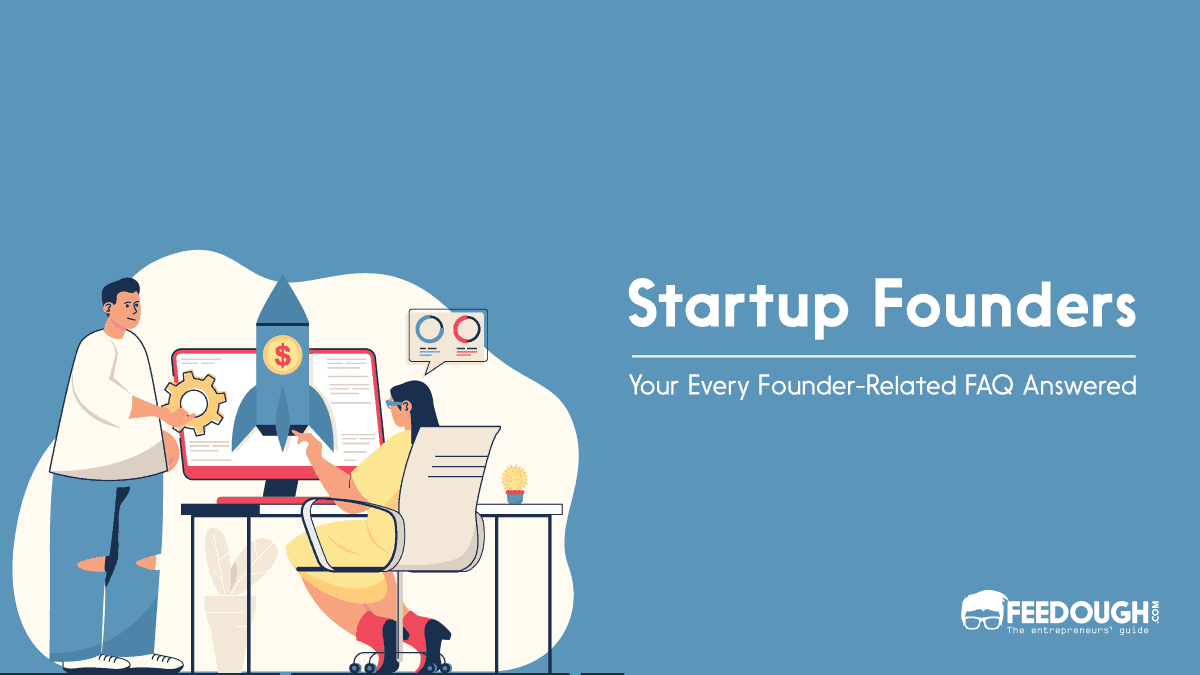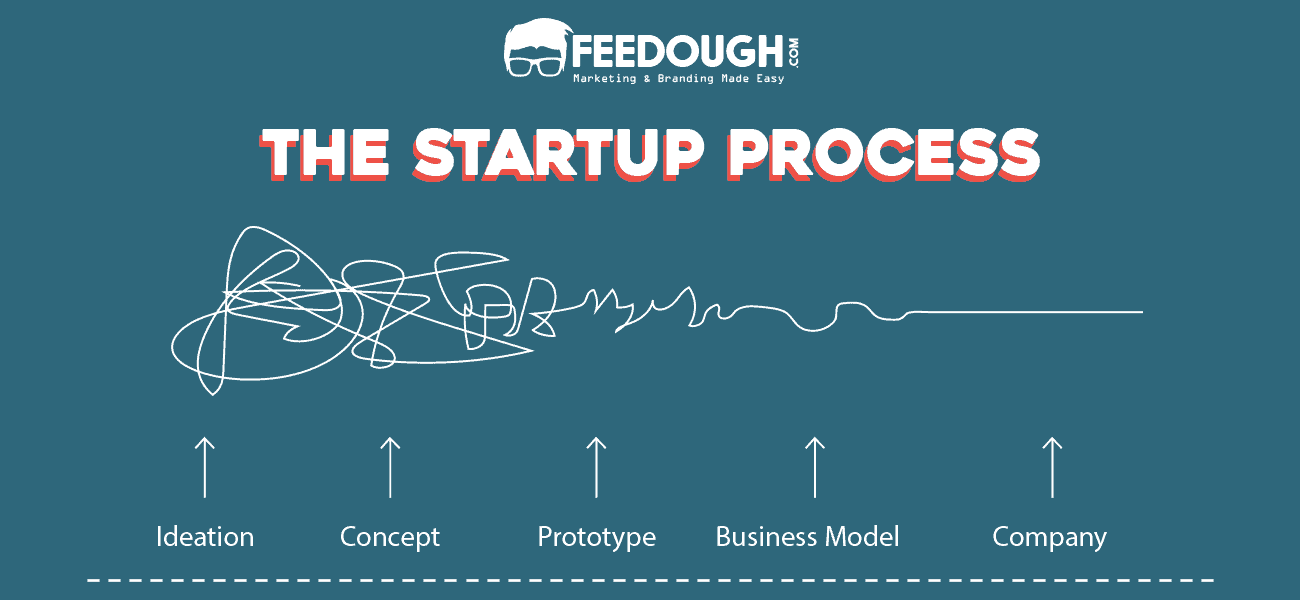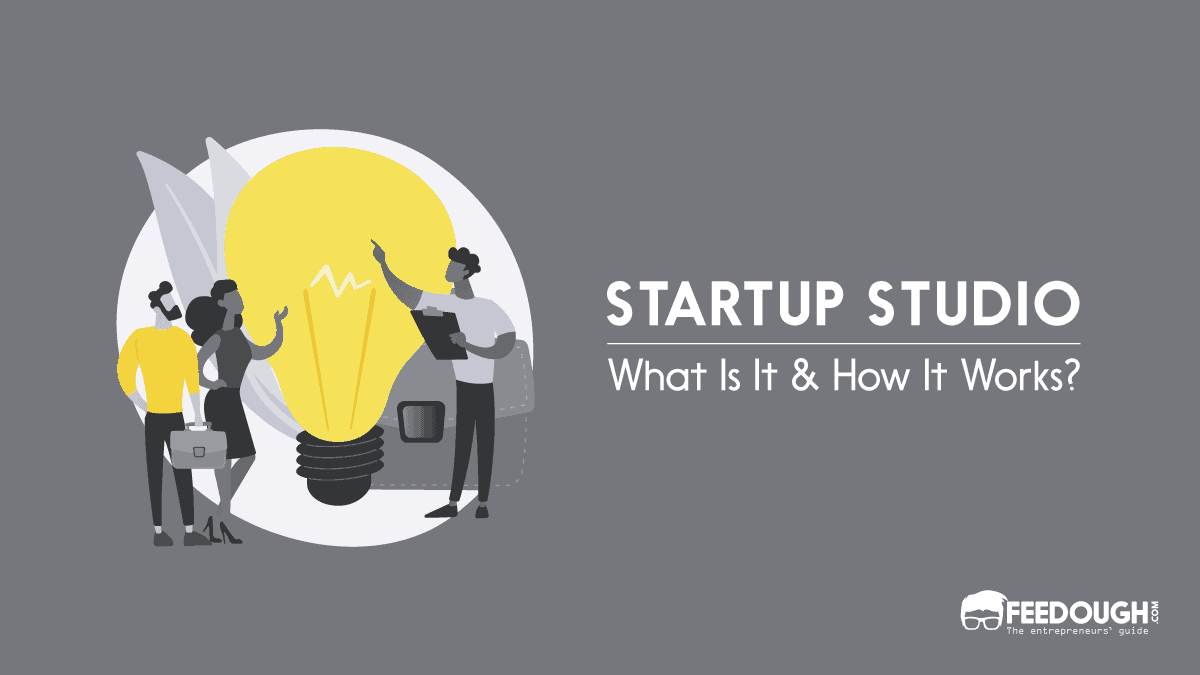Starting up isn’t a piece of cake. Even if a startup founder succeeds in getting an idea that could disrupt the market, there are some required skills needed to realise that idea, that they might just can’t master themself.
This is where the cofounders step in. A cofounder can be considered as Luigi to Mario, Wasp to the Ant-Man, or anyone who fits perfectly with the main protagonist to complete the required skillset and fulfil the vision of a proposed company.
Now, many of us are often confused regarding the distinction between a founder and a cofounder or the responsibilities associated with these positions. Many of us even use these two designations interchangeably. But that should not happen. A cofounder has his own identity which is different from the founder.
Here’s a complete guide to help you understand who is a cofounder, how a cofounder is different from a founder, and what are their roles and responsibilities.
What Is A Cofounder?
A cofounder is any individual who starts a company or any other business venture with the help of other people.
This definition might be puzzling as it makes no conspicuous distinction between a founder and a cofounder. In fact, a layman often commits the mistake of considering both these positions as alternatives for each other. So, what is the basic difference between a founder and a cofounder? The answer lies below.
Cofounder vs. Founder
A founder is usually the person who has a defined idea of a business. But they may or may not have adequate finance or human resource or even lack some required skills to realise it.
A cofounder, on the other hand, is the person who accompanies the founder (the person with the idea) in establishing the business and takes the responsibility to convert it into a successful one.
To make this definition even more clear, let us look at the example of Facebook.
Facebook was born out of Zuckerberg’s head during his university days and the access to Facebook was initially limited to the students of Harvard University.
However, Zuckerberg wanted to expand the Facebook business model and hence, called his fellow mates to help him for the same. The fellow students included Eduardo Saverin, Dustin Moskovitz, Andrew McCollum, Chris Hughes. These four took major responsibilities and were recognized as the cofounders of the social media platform.
Now that we are clear about what a cofounder exactly is, let’s discuss the various responsibilities that are discharged by him.
Responsibilities Of A CoFounder
Being a cofounder is no easy job. A cofounder is not only entrusted with the initiation of a business, but they have to monitor the progress as well.
Given below are some of the responsibilities which are to be fulfilled by a cofounder. Keep in mind that these responsibilities keep changing with respect to a particular niche, initial investment, the scale of production etc.
Identifying Market Opportunities
While the founder often is the brain behind the product, cofounder is the person responsible for the go-to-market plans and scaling. They research the opportunity areas where the offering can be positioned to get the most traction and takes a big-picture view of the market segment they plan to target.
Developing The Final Product
Cofounders usually join the board before the actual product is launched and hence, work in sync with the founder to make the product better by taking feedback during the MVP and beta stage.
Guiding The Board Of Directors
Since cofounder is among the biggest shareholders of the company, they are often levied with the responsibility of deciding the type of board, the panel on the board and the entire process through which the board goes. It is important to balance this board while also ensuring a smooth communication flow.
Projecting A Vision
The founder and the cofounders work closely in defining a business model, mission, and vision of the company.
Recruiting The Best Employees
Human resource adds to the overall value of the organization and helps in continues development. Hence, cofounders are required to acquire as much talent in the organization as possible.
A team led by the growing spirit, hard work and consistency always help in giving the best kick-start to a new business.
Staying Focused On KPI’s
Successful cofounders make sure that the key performance indicators are closely monitored to assess the productivity and performance of the company.
Business Planning
A cofounder needs to develop a business plan with all the short term and long term goals of the business. This business plan is required to consider all the sudden triggers and also provides a last-minute plan for dealing with them.
Taking Financial Decisions
All the decisions regarding finances must be scrutinized closely before taking the final decision. Under-utilization of resources is a nightmare for growing companies.
How To Find A Cofounder For A Company?
How to find a cofounder? What makes a person an ideal choice for this position? How can a cofounder contribute to your startup idea?
All these questions must be lingering in your head now. We understand how crucial this decision can be for a person who is planning for a startup or just a small business. Even a small glitch in the duties discharged by a cofounder can cause immense loss to a newly found business.
The most important aspect to keep in mind is the balancing of skills. Every individual can not be perfect in every other function. Hence, if you are looking for a cofounder, it is important to make a list of the skills you have mastered and skills that are required to run your business. Now, look for individuals who carry a set of required skills that are different from the ones you already have. This will help in ensuring proper functioning and balancing of power in the business.
Skill analysis also helps you decide if you require one or more cofounders.
Apart from the crucial functions of a particular business, there are certain generic characteristics a person must have in order to become a cofounder. If you are looking for one, make sure they stand firm on the following aspects.
Responsibilities
A cofounder should be open to the responsibilities of all forms. Even though the idea belongs to the founder, a cofounder is required to give their optimum best in every job they undertake.
These responsibilities are different for every business. Proper disposal of these duties helps in the quick growth of the business.
Cofounder Skills
A cofounder needs to adopt a variety of skills for the better implementation of the plans and policies. These skills include:
Core-Business-Related Skills
These are the most important skills which complement the founder’s in running a successful business. It could be marketing, sales, or even technological, depending upon the business needs.
Communication Skills
A cofounder needs to know the basics of effective communication. Effective communication skills help in easy and quick dispersal of instructions, smooth negotiation, and negotiation process.
He is the face of the company both on external and internal grounds. A skillset with good communication skills is always required within the representative.
Leadership Skills
It is important to invest in people who transform every hour into a productive day. Cofounders need to encourage their subordinates to put their best foot forward, irrespective of circumstances.
Problem-Solving Skills
Every decision should be based on the objective of the continuous growth and development of the business.
Sometimes, cofounder will also be required to make hard choices, which might lead to a conflict of interest between different parties. However, proper dispersal of communication and instructions will help in avoiding conflicts.
The job of a cofounder might seem like havoc but successful startups are a combined result of the hard work and passion put in by both the founder and a cofounder. A dedicated cofounder leaves no space for negative remarks or a poor result rather focuses on achieving higher standards of growth.
Go On, Tell Us What You Think!
Did we miss something? Come on! Tell us what you think about our article on what is a cofounder in the comments section.
A startup analyst who believes that every big project is the result of numerous small efforts that go into the way. Giving anything below 100% is a huge setback to my natural capabilities.









